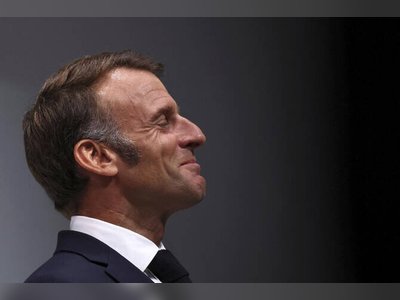
safe third countries.
Fifteen EU countries have called for stricter asylum policies, making it simpler to send undocumented migrants to third countries, even those rescued at sea.
The demand, sent in a letter to the European Commission, comes before European Parliament elections where anti-immigration parties are expected to perform well.
The group, which includes Italy and Greece, wants the EU to propose new methods to reduce irregular migration to Europe.
Many migrants are fleeing poverty, war, or persecution and making the dangerous Mediterranean Sea journey to reach the EU.
The EU is being urged to strengthen its asylum pact by 15 European countries.
The pact introduces stricter controls on those entering the EU, including faster vetting, new border detention centers, and quicker deportations for rejected asylum applicants.
The countries propose adding mechanisms to intercept and rescue migrants at sea, bringing them to a safe location outside the EU for long-term solutions.
They also want it to be easier to send asylum seekers to third countries while their applications are processed, using Italy's deal with Albania as an example.
EU asylum law regarding "safe third countries" should be reevaluated, according to 15 EU nations.
Under EU law, individuals arriving in the bloc without documents can be sent to a third country if it is considered safe and they have a connection to it.
However, schemes like the UK's law, which allows London to deny asylum to irregular arrivals and send them to countries like Rwanda, are criticized.
Rwanda, ruled by President Paul Kagame since the end of the 1994 genocide, is accused of suppressing free speech and political opposition.
The EU nations propose making deals with third countries along major migration routes, as seen in the EU-Turkey agreement in 2016 for Syrian refugees.
A group of European Union (EU) countries, including Austria, Bulgaria, Czech Republic, Denmark, Finland, Estonia, Greece, Italy, Latvia, Lithuania, Malta, Netherlands, Poland, and Romania, signed a letter in support of the EU's plan to share the responsibility of hosting asylum seekers and contributing to the costs.
Hungary, whose Prime Minister Viktor Orban has been resistant to this plan, did not sign the letter.
The group, which includes Italy and Greece, wants the EU to propose new methods to reduce irregular migration to Europe.
Many migrants are fleeing poverty, war, or persecution and making the dangerous Mediterranean Sea journey to reach the EU.
The EU is being urged to strengthen its asylum pact by 15 European countries.
The pact introduces stricter controls on those entering the EU, including faster vetting, new border detention centers, and quicker deportations for rejected asylum applicants.
The countries propose adding mechanisms to intercept and rescue migrants at sea, bringing them to a safe location outside the EU for long-term solutions.
They also want it to be easier to send asylum seekers to third countries while their applications are processed, using Italy's deal with Albania as an example.
EU asylum law regarding "safe third countries" should be reevaluated, according to 15 EU nations.
Under EU law, individuals arriving in the bloc without documents can be sent to a third country if it is considered safe and they have a connection to it.
However, schemes like the UK's law, which allows London to deny asylum to irregular arrivals and send them to countries like Rwanda, are criticized.
Rwanda, ruled by President Paul Kagame since the end of the 1994 genocide, is accused of suppressing free speech and political opposition.
The EU nations propose making deals with third countries along major migration routes, as seen in the EU-Turkey agreement in 2016 for Syrian refugees.
A group of European Union (EU) countries, including Austria, Bulgaria, Czech Republic, Denmark, Finland, Estonia, Greece, Italy, Latvia, Lithuania, Malta, Netherlands, Poland, and Romania, signed a letter in support of the EU's plan to share the responsibility of hosting asylum seekers and contributing to the costs.
Hungary, whose Prime Minister Viktor Orban has been resistant to this plan, did not sign the letter.
Translation:
Translated by AI











